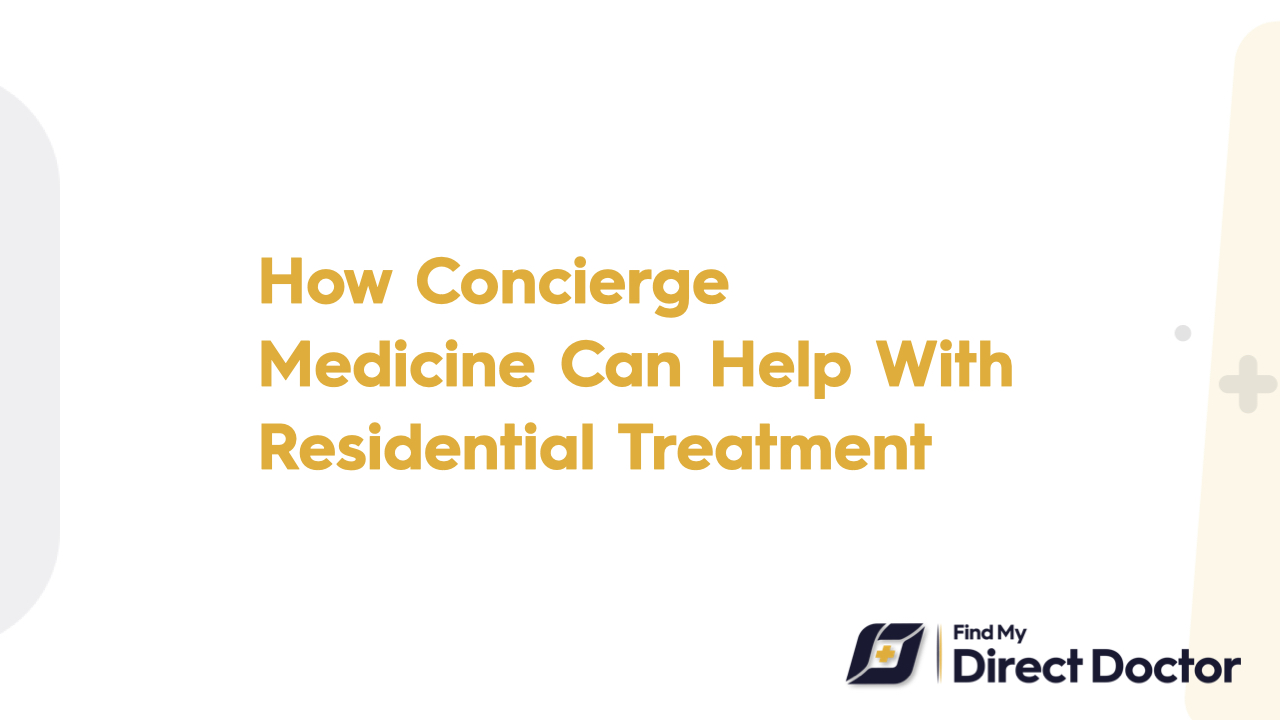



A residential treatment program is an intensive, often long-term program that is designed to treat a variety of medical and psychological problems. Patients typically reside in specialized facilities for the duration of their therapy when receiving these treatments. As a result of providing a level of personalized care and attention that exceeds traditional models, concierge medicine can play a crucial role in improving the experience and outcomes of residential treatment.

As part of concierge medicine, patients receive tailored care tailored to their specific needs, offering a bespoke approach to residential treatment. During the initial consultation, concierge physicians develop a treatment plan tailored to the patient's unique medical, psychological, and lifestyle requirements. Personalized care allows for a deeper understanding of the patient's condition and ensures the treatment plan is aligned with their goals and preferences.
Throughout their residential treatment, concierge physicians serve as advocates for their patients, working closely with specialists, therapists, and other healthcare providers to ensure that all aspects of the patient's care are well integrated. As a result, the patient receives the most effective and cohesive care possible, while streamlining the treatment process and reducing delays.
Providing high levels of personalized attention and support to patients undergoing residential treatment are among the primary benefits of concierge medicine. In a concierge practice, patients have direct access to their physician, who provides individualized care and attention throughout the treatment process. With this personalized approach, patients’ conditions can be more effectively managed and treatment plans can be more aligned with their specific needs and goals.
By offering a wide array of conveniences and services not typically available in traditional settings, concierge medicine enhances the overall experience of residential treatment. Patients in residential programs, for example, with complex schedules and needs may benefit from concierge physicians' flexible scheduling for consultations and follow-up visits. Furthermore, concierge practices often offer enhanced communication options, such as direct phone or email access, which can make it easier for patients to reach their physicians and address any concerns.
In addition, a concierge model emphasizes continuity of care, which is crucial for residential treatment patients. From the initial assessment through the completion of the residential program, the concierge physician remains actively involved in every aspect of the patient's care. In this way, the patient's treatment is consistent, and any issues or complications are dealt with promptly. As a result, a stronger patient-physician relationship can contribute to successful treatment.
As part of concierge medicine, patients are provided with a personalized approach to preparation for residential treatment procedures. A concierge physician ensures that the patient is fully prepared for the treatment process before starting the residential program. As part of this preparation, the patient's medical and psychological needs are assessed, as well as the residential stay is carefully planned. As part of the treatment, the physician offers guidance on what to expect, helps the patient set realistic goals, and ensures that all necessary preparations are made to facilitate a smooth transition into a residential program.
As the patient recovers, concierge medicine continues to offer personalized support and care. During residential treatment, the concierge physician monitors the patient's progress and adjusts the treatment plan as necessary. By providing personalized follow-up, the patient receives ongoing support as they work towards recovery and addresses any emerging issues or complications.
Concierge physicians remain involved in the patient's care after the residential treatment program is completed, assisting with the patient's return to everyday life and providing guidance on any additional therapy or follow-up necessary. As a result of this ongoing support, the progress made during residential treatment is reinforced and long-term stability is promoted.
Ultimately, concierge medicine enhances residential treatment by providing personalized care, coordination, and support to patients. As a result of this tailored approach, patients receive the best possible care throughout their treatment and recovery process, resulting in improved outcomes.
Previous Post